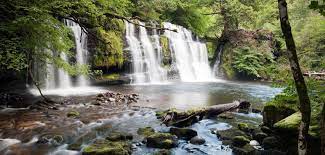The Importance of Managing Resources Effectively
Resources are the building blocks of any successful endeavour, whether it’s a business, a project, or even personal goals. Efficient management of resources is crucial for achieving desired outcomes and maximising productivity.
One key aspect of resource management is identifying and utilising resources effectively. This involves understanding what resources are available, their capabilities, and how they can be optimally deployed to meet objectives. Whether it’s financial resources, human capital, time, or technology, each resource plays a vital role in the success of a venture.
Proper allocation of resources is another critical factor in resource management. It’s essential to distribute resources in a way that aligns with priorities and goals. By allocating resources strategically, organisations can avoid waste and ensure that each resource is used efficiently to drive progress.
Moreover, monitoring and evaluating resource usage is key to maintaining efficiency over time. Regular assessment allows for adjustments to be made as needed, ensuring that resources are being utilised optimally and are contributing effectively to overall performance.
In today’s fast-paced world where competition is fierce and demands are constantly evolving, effective resource management has become more important than ever. Those who can harness their resources wisely will have a competitive edge and be better positioned for success.
In conclusion, managing resources effectively is essential for achieving goals, driving growth, and ensuring sustainability. By understanding the value of resources, making informed decisions about their allocation, and monitoring their usage diligently, individuals and organisations can unlock their full potential and thrive in an increasingly dynamic environment.
Maximising Resources: Five Essential Tips for Sustainable and Effective Utilisation
- Utilize online libraries and databases for research
- Join local community groups to share and exchange resources
- Consider using renewable energy sources to conserve natural resources
- Invest in educational resources like books, courses, and workshops
- Recycle and upcycle materials to reduce waste and make the most of available resources
Utilize online libraries and databases for research
Utilizing online libraries and databases for research is a valuable tip that can significantly enhance the quality and efficiency of your research efforts. Online resources offer a vast array of information spanning various disciplines, providing access to academic journals, books, articles, and other scholarly materials at your fingertips. By leveraging these digital repositories, researchers can save time, access up-to-date information, and explore a breadth of sources that may not be readily available through traditional means. Embracing online libraries and databases empowers individuals to conduct thorough and well-informed research, ultimately leading to more robust findings and insights in their academic or professional pursuits.
Join local community groups to share and exchange resources
Joining local community groups is a valuable tip for resource management. By actively participating in these groups, individuals can tap into a network of like-minded people who are willing to share and exchange resources. This collaborative approach not only fosters a sense of community but also allows for the efficient utilisation of resources that may otherwise go unused. Through sharing resources within the local community, individuals can access a wider range of tools, skills, and support, ultimately leading to a more sustainable and interconnected society.
Consider using renewable energy sources to conserve natural resources
One effective tip for resource conservation is to consider utilising renewable energy sources. By harnessing power from sustainable sources such as solar, wind, and hydroelectric energy, we can reduce our reliance on finite natural resources like fossil fuels. Not only does this help in preserving our environment and mitigating climate change, but it also ensures a more sustainable future for generations to come. Making the switch to renewable energy not only conserves natural resources but also promotes a cleaner and greener planet for all.
Invest in educational resources like books, courses, and workshops
Investing in educational resources such as books, courses, and workshops is a valuable tip for personal and professional development. By dedicating time and resources to learning opportunities, individuals can acquire new knowledge, skills, and perspectives that can enhance their expertise and open up new opportunities. Educational resources provide a platform for continuous growth and improvement, empowering individuals to stay relevant in a rapidly changing world and reach their full potential.
Recycle and upcycle materials to reduce waste and make the most of available resources
Recycling and upcycling materials are valuable practices that not only help in reducing waste but also allow us to maximise the use of available resources. By repurposing items through recycling or upcycling, we can extend their lifespan, reduce the demand for new raw materials, and contribute to a more sustainable environment. These actions not only benefit the planet by minimising landfill waste but also encourage creativity and innovation in finding new ways to utilise resources effectively.

